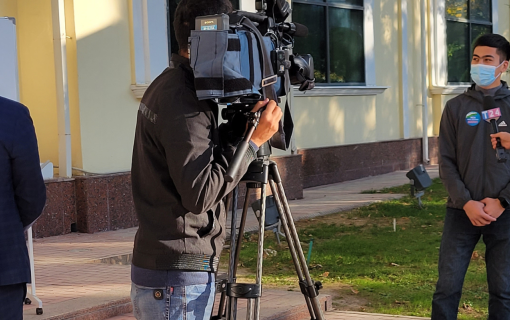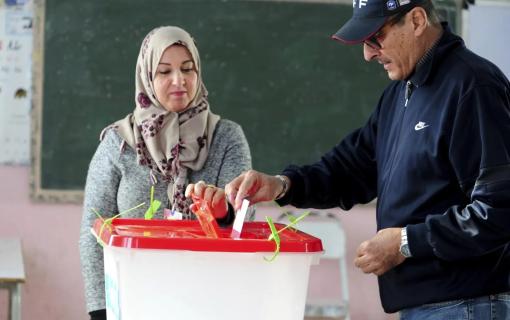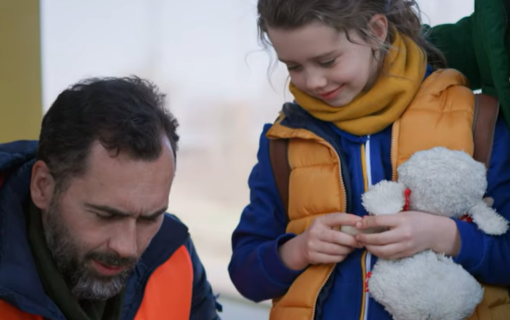In Morocco, Fostering Youths as Agents of Change
Ismail Ilsouk spent six weeks at IFES as part of the Middle East Partnership Initiative’s Leaders for Democracy Fellowship this summer. In this role, he examined the vibrancy of Morocco’s youth-oriented civil society organizations.
Currently based in Ait Ourir, Morocco, he is active in his country’s youth sector. He serves as Vice President for the Local Youth Council, Secretary General for the Local Associations' Network and as the External Relations Liaison for the Moroccan Organization for Young Volunteers. He is also on the Executive Board for the local branch of the Youth of the Justice and Development Party.
In this interview, he tells us about the low levels of youth civic engagement in Morocco and why this matters.
What was the focus of your work at IFES?
My fellowship at IFES consisted of building a database of Moroccan CSOs, contacting them and initiating partnerships and collaboration between them and IFES on projects related to election participation.
What did you find in your research of youth-based civil society organizations in Morocco?
By the end of my fellowship, I reached many conclusions about youth-based CSOs in Morocco. The first is that the majority of these CSOs suffer from a lack of communication channels. The second is that, due to the unpredictable situation in Arab countries that have witnessed revolutions, many international nongovernmental organizations (NGOs) have shifted their attention toward Morocco instead of places like Egypt and Yemen.
The Moroccan CSOs with the most projects are based in the capital of Rabat or large cities like Casablanca or Fez. Similar opportunities for CSOs in the rest of Morocco, mainly in the South, are very limited, but not absent. The inequality of opportunities and support for CSOs in Morocco is visible. A recent report from the Ministry of Relations with the Parliament and Cvil Society reveals that only 10 percent of Moroccan CSOs benefit from 90 percent of the government financial support.
Overall, how involved are young Moroccans in political and civic affairs and how does their involvement compare to their elders’?
Generally, the involvement of young Moroccans in political and civic affairs is still very low. According to the Moroccan Household Survey 2009-2010, young Moroccans spend on average of 80 percent of their time on leisure activities. The time devoted to civic engagement is almost absent.
Similarly, according to a recent study by the Moroccan Center for Social, Economic, and Administrative Studies, 96 percent of young Moroccans who were interviewed had no political affiliation. While the involvement of Moroccan youth in both civic and political affairs has increased, especially after the Arab Spring, it has not reached the numbers nor the effectiveness we wish for.
What impact does/could youth involvement have on the country?
As an actor of change, youth can contribute to greater social change and democratic reforms in their countries. The best example of this in the Arab World is the involvement of youth in the Arab Spring – they changed the status quo in many countries and will contribute to a better future for them.
What impact did the Arab Spring have in the youth's motivation to be involved?
The Arab Spring (the Democratic Spring as I prefer to call it) has definitely had a great influence on Moroccan youth and increased their interest to be involved. I believe Moroccan youth have always had an interest in politics and all other arenas. The right circumstances provided by the uprisings in many Arab countries resulted in a great example of young people demanding change. I think a new phase of youth engagement, mainly politically, has started since the uprising in Morocco but it needs to be supported and the right ''circumstances" and motivation should be provided for it.
What are some of the obstacles that Moroccan youth-based CSOs face and how can these be overcome?
In my opinion, Moroccan CSOs suffer from organizational obstacles and support issues. As I mentioned before, the weakness of communication channels and the inefficiency of many CSO staff affects their performance. Limited resources and support devoted to Moroccan organizations and the unequal division of this support presents an obstacle among youth involved in these CSOs.
I believe the secret to having high performing CSOs is to have skilled, properly-trained youth leading them and providing the support and resources needed.
What can be done to engage youth – independently of what can be done to foster more involvement from the civil society organizations?
Young people constitute 30 percent of the Moroccan population. This youth bulge can be considered a demographic gift as youth can be an engine for growth in the country, but it can be also very challenging. Unemployment is very high among Moroccan youth. Thirty percent of urban Moroccan youth are unemployed. I believe unemployment is one of the most serious barriers to youth engagement in all arenas.
Moroccan youth need better economic opportunities which will give them the chance to develop themselves and their societies. The high rate of unemployment is not only related to few economic opportunities but also to the absence of education or the incompatibility of education with the job market. I think that a young person who is educated and economically stable would be more willing to participate in civil society organizations and in politics. Another barrier that I can speak about from my own experience is that Morocco is very centralized. Programs or projects dedicated to youth – that are managed by the government or any other stakeholder – do not reach all regions, especially rural areas and regions far away from the center.









